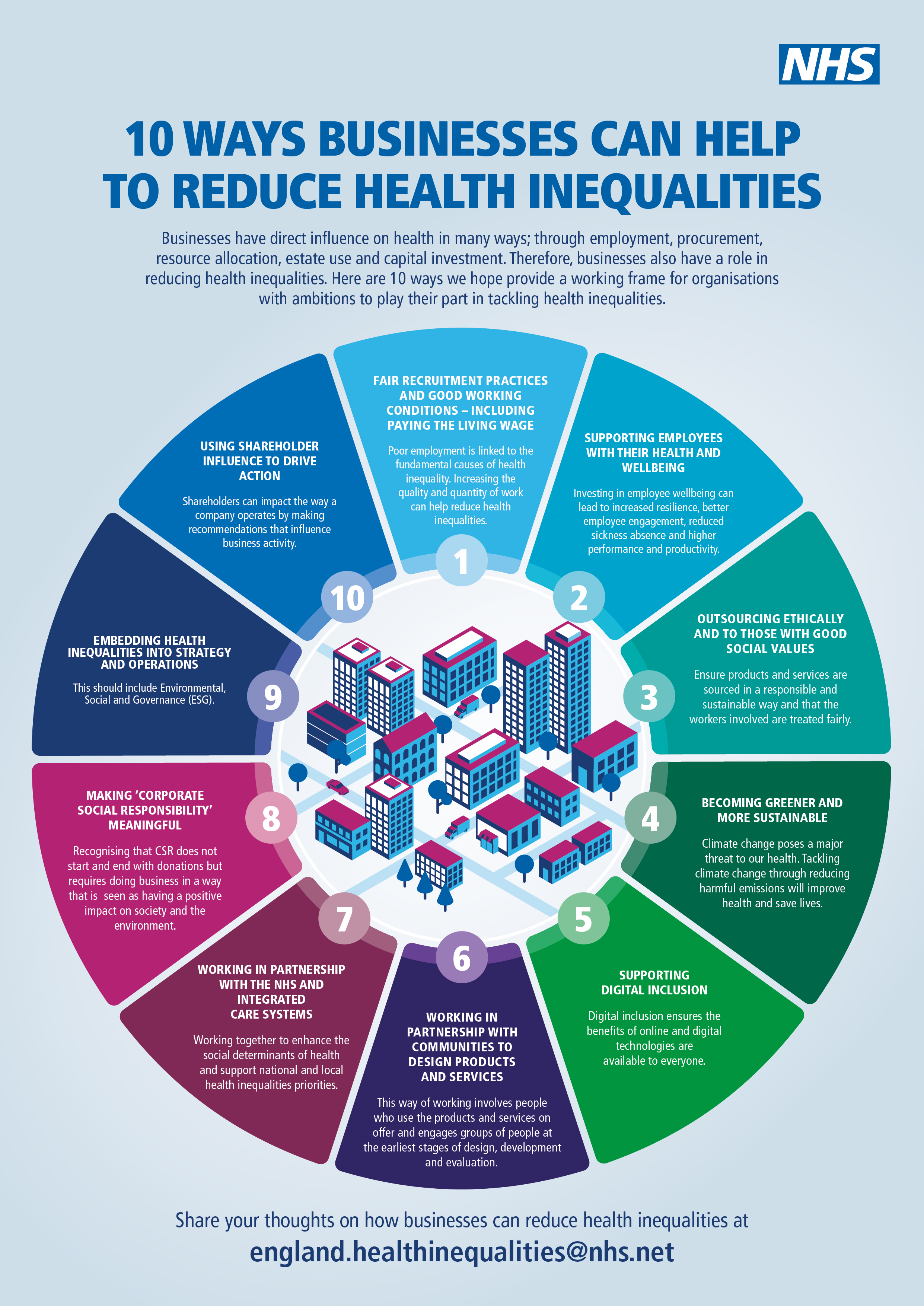The role of businesses in reducing health inequalities

During the pandemic, businesses demonstrated high levels of support for the NHS and played a key role in supporting our COVID-19 response and vaccination programme through their corporate social responsibility (CSR) practices, demonstrating positive influence and impact on their workforce, customers, partners, supply chains and the wider community.
We now want to explore and expand the role that businesses and industries can play in reducing health inequalities. This can include steps that organisations can take as ‘anchor’ institutions; intentionally orientating their employment and procurement practices to support the places where they operate. It can also span the sphere of the use of assets and resources to enhance social and economic conditions as well as through local place-based and national partnerships working with the NHS.
I was delighted to co-host an insightful roundtable event alongside Lord David Prior, Chair of NHS England and Professor Sir Michael Marmot, Director of the University College London Institute of Health Equity, to explore these topics with industry representatives. We brought together organisations from a variety of sectors to explore how the NHS and the private sector can work in partnership to further reduce health inequalities, address the social determinants of health, develop a network of support to maximise influence and impact across the sector and discuss what actions and outputs are required to drive demonstrable impact.
Over the two hours, we heard some brilliant examples of where the private sector is already delivering work in this field through employment, operations, the Green agenda and working with communities. We also shared examples of where the NHS is already making an impact through private sector partnerships, including from our Greener NHS team who have been making significant in-roads through these collaborations towards achieving our Net Zero ambitions.
Drawing from the rich discussions at the roundtable, we have developed 10 actions that the private sector can take in contributing to reducing health inequalities (please see the infographic below). These are broad areas that we hope to provide a working frame for organisations with ambitions to make great strides in this area.

We now plan to work with our business colleagues in shaping a future event that will further support organisations to understand the role they can play and how they can partner with our NHS systems to make the biggest impact.
We know that some companies have been working to invest in health equity for some time. We want to learn from their experiences and support more organisations to engage in similar work. The NHS, as a learning organisation is committed to this joint endeavour of strengthening our knowledge base in this area, broadening our horizon and taking collective action to narrow the health inequalities gap.
I want to thank everyone who attended the roundtable last week for their contribution to such a rich and impactful discussion and hope they and many others will join us for a wider conversation at another event that we are planning for the near future.
As Sir Michael Marmot says, “Businesses can be a far greater force for good in society if we work to identify areas where they can sustainably and positively impact people’s lives”.
Let’s work together to make the business of reducing health inequalities, everyone’s business.
Blog reposted from the NHS website, written by Dr Bola Owolabi MB BS DFFP MRCGP MSc, Director of Health Inequalities at NHS England and NHS Improvement. She works as a General Practitioner in the Midlands.
Original blog: https://www.england.nhs.uk/blog/the-role-of-businesses-in-reducing-health-inequalities/